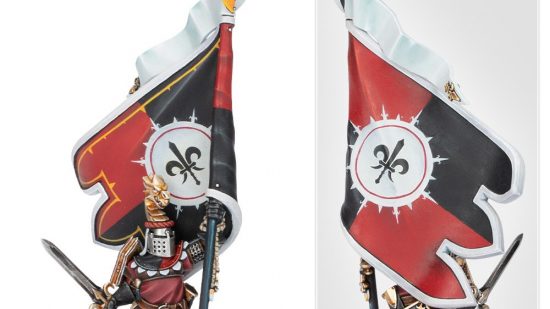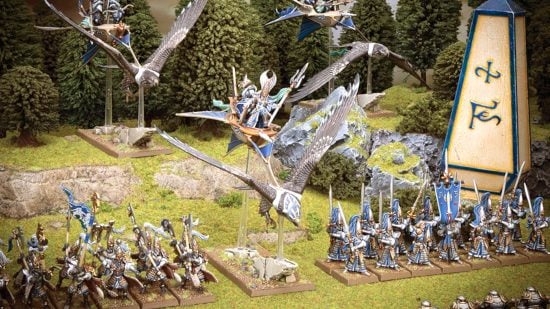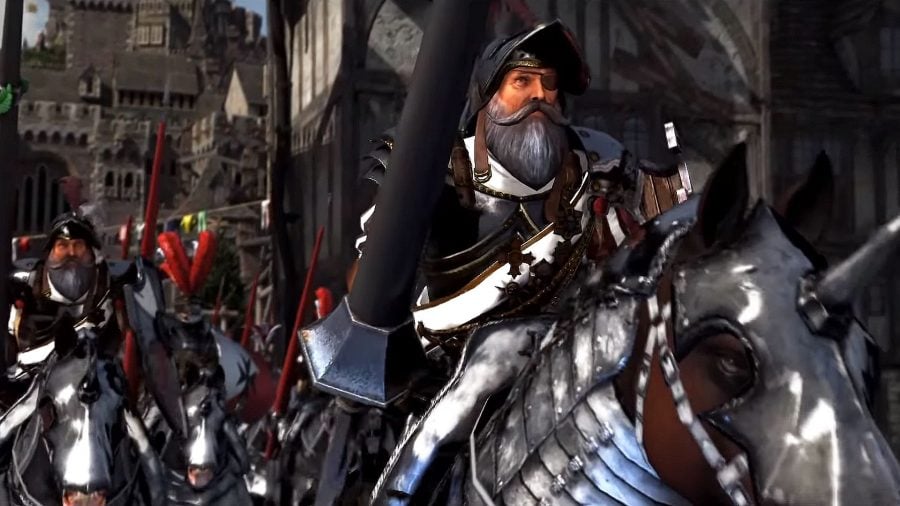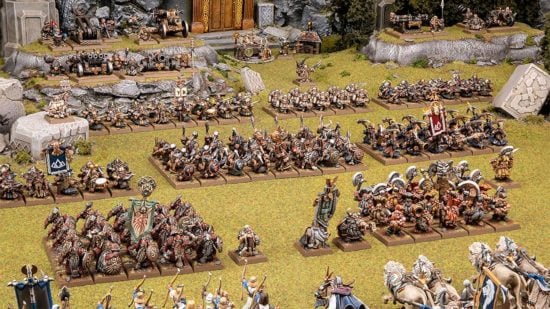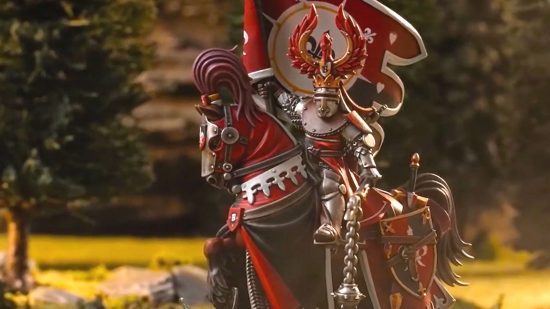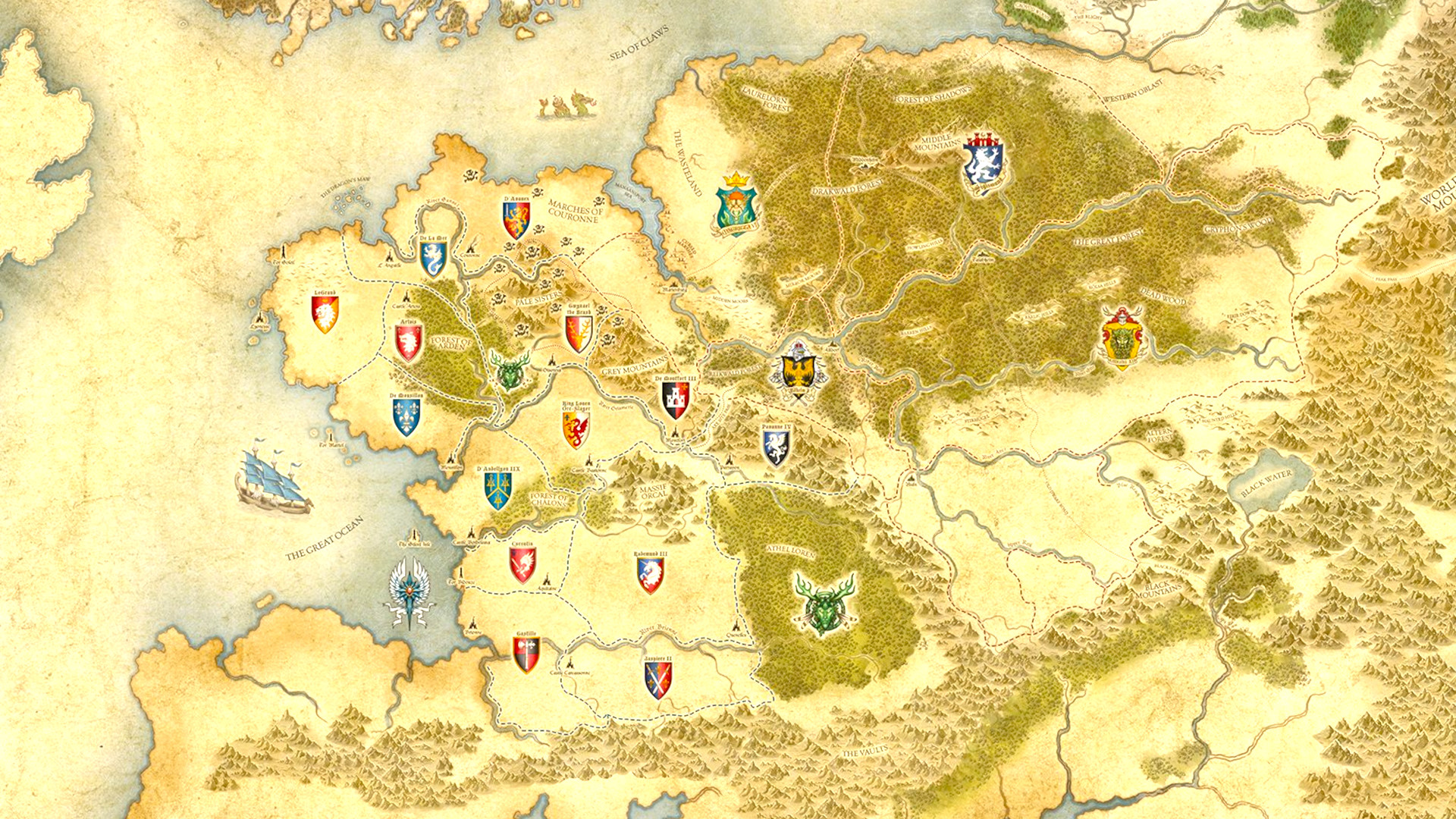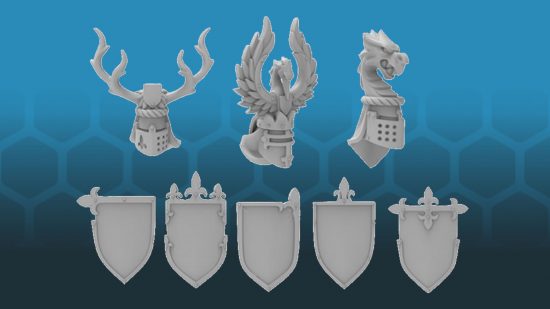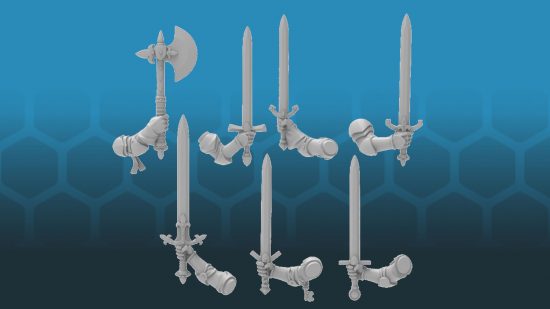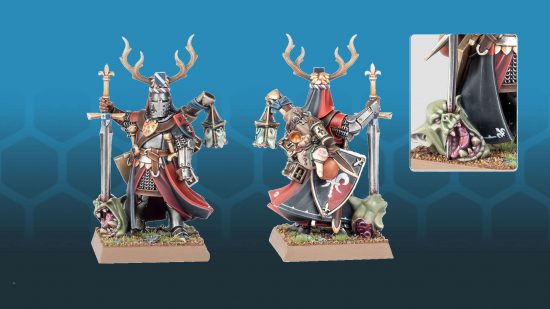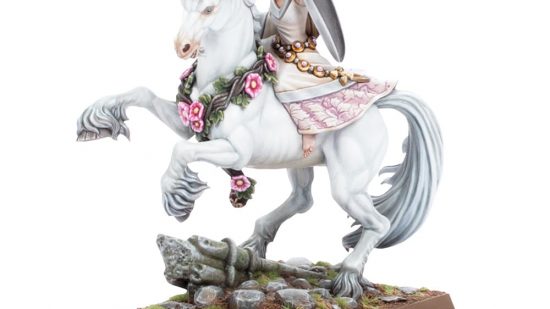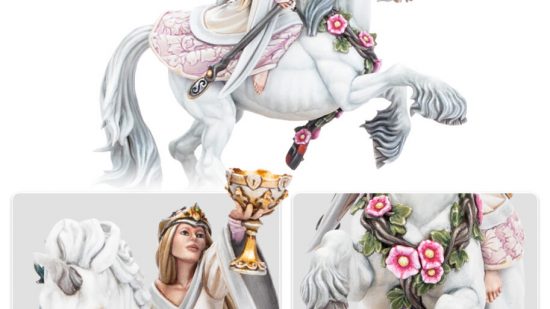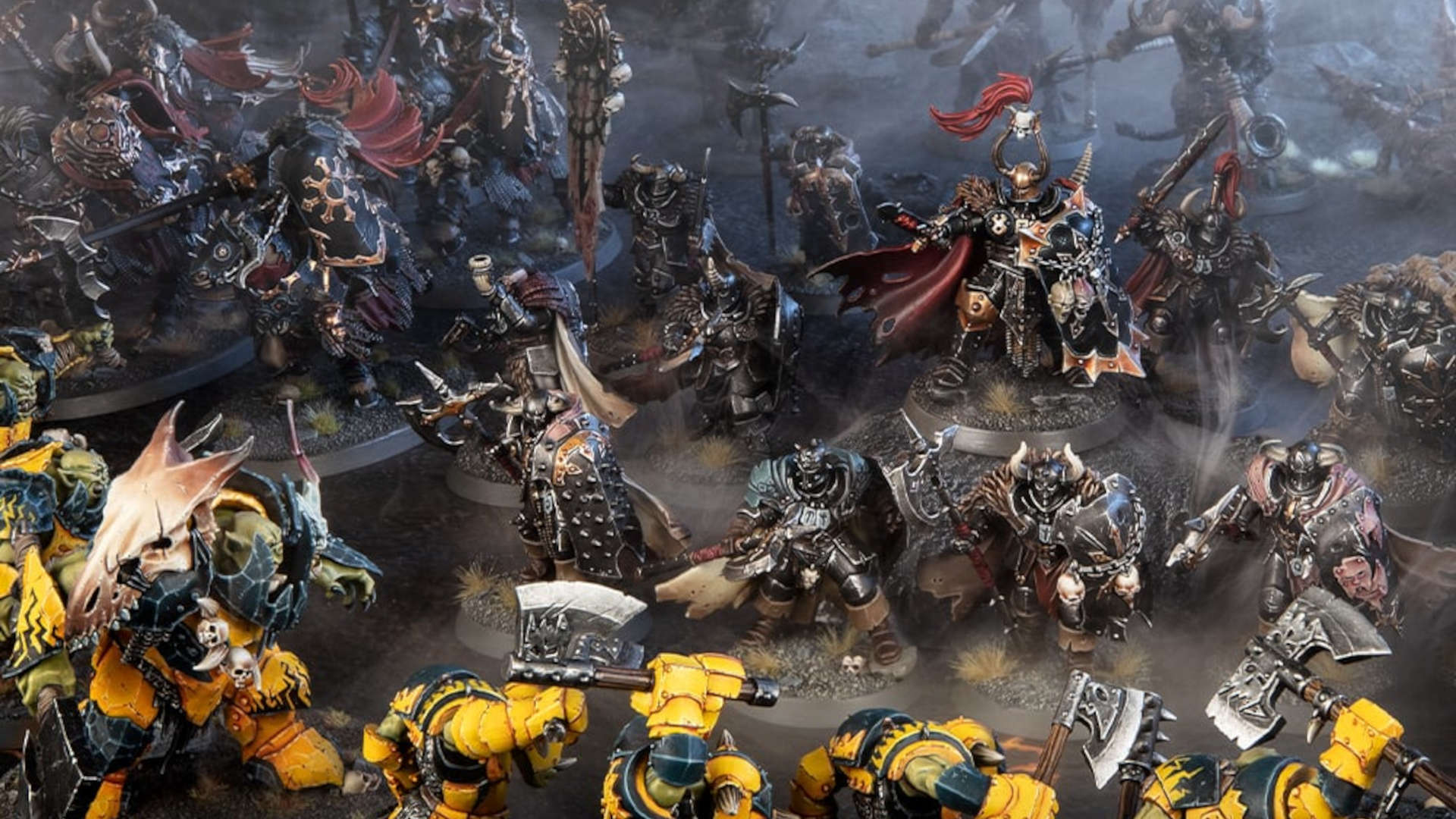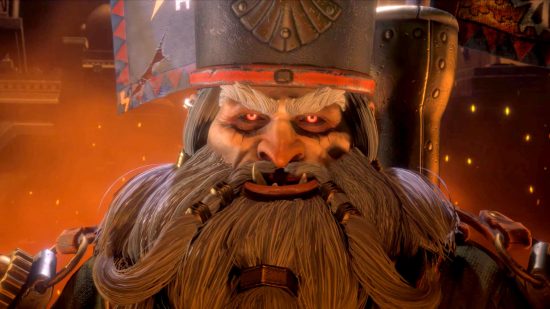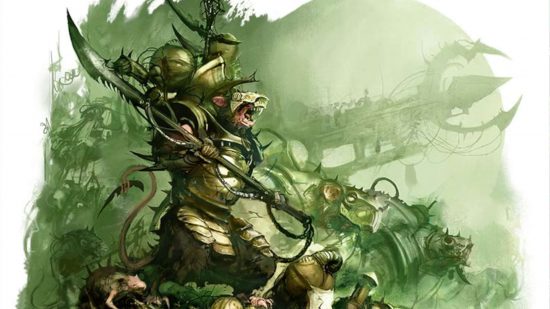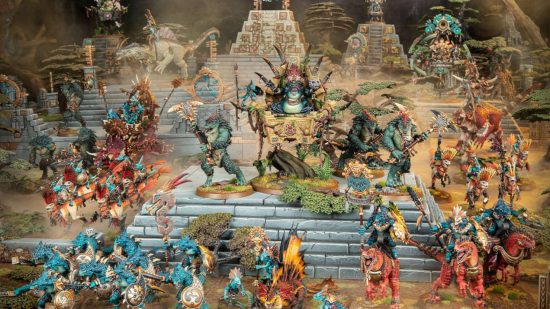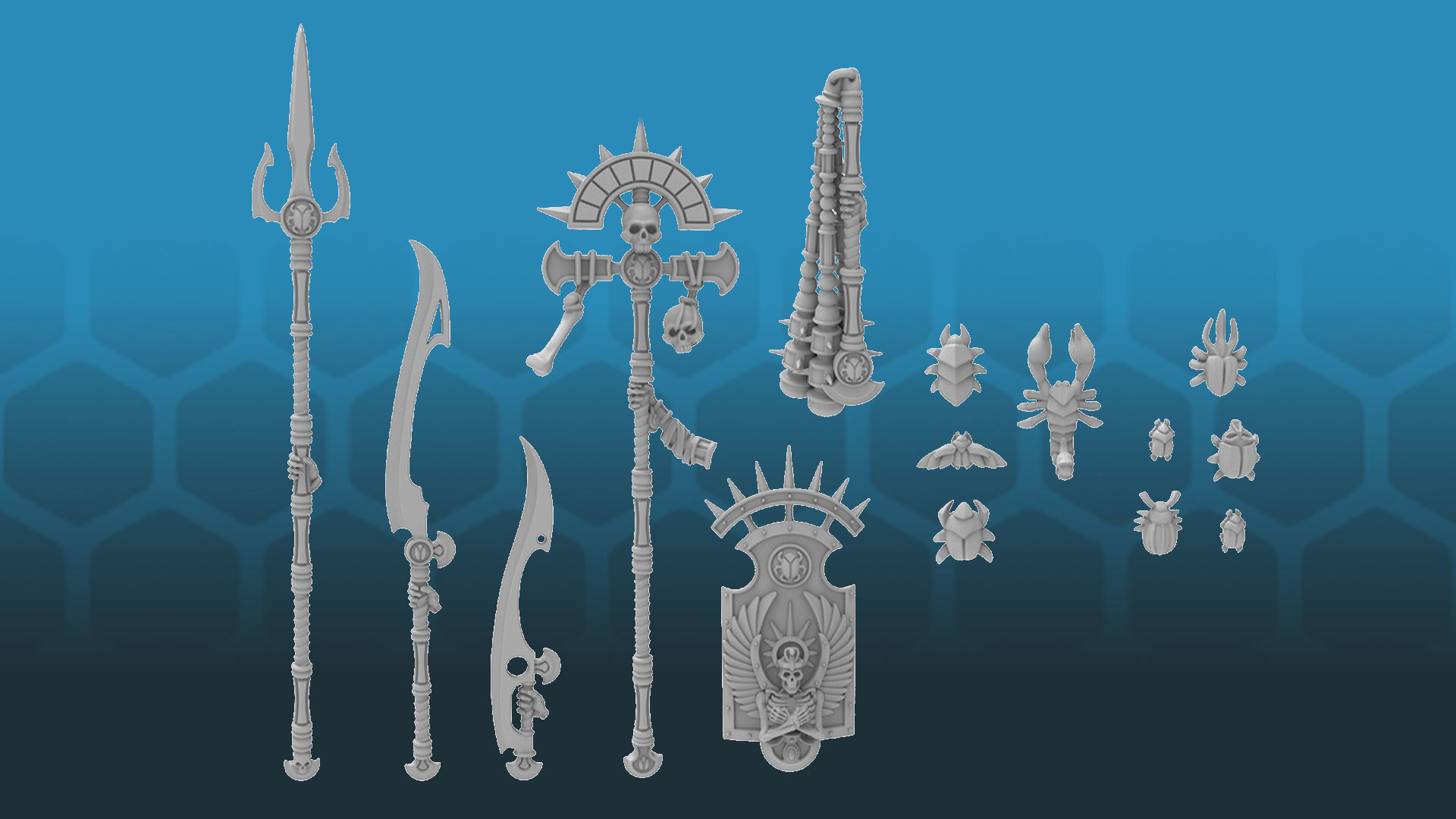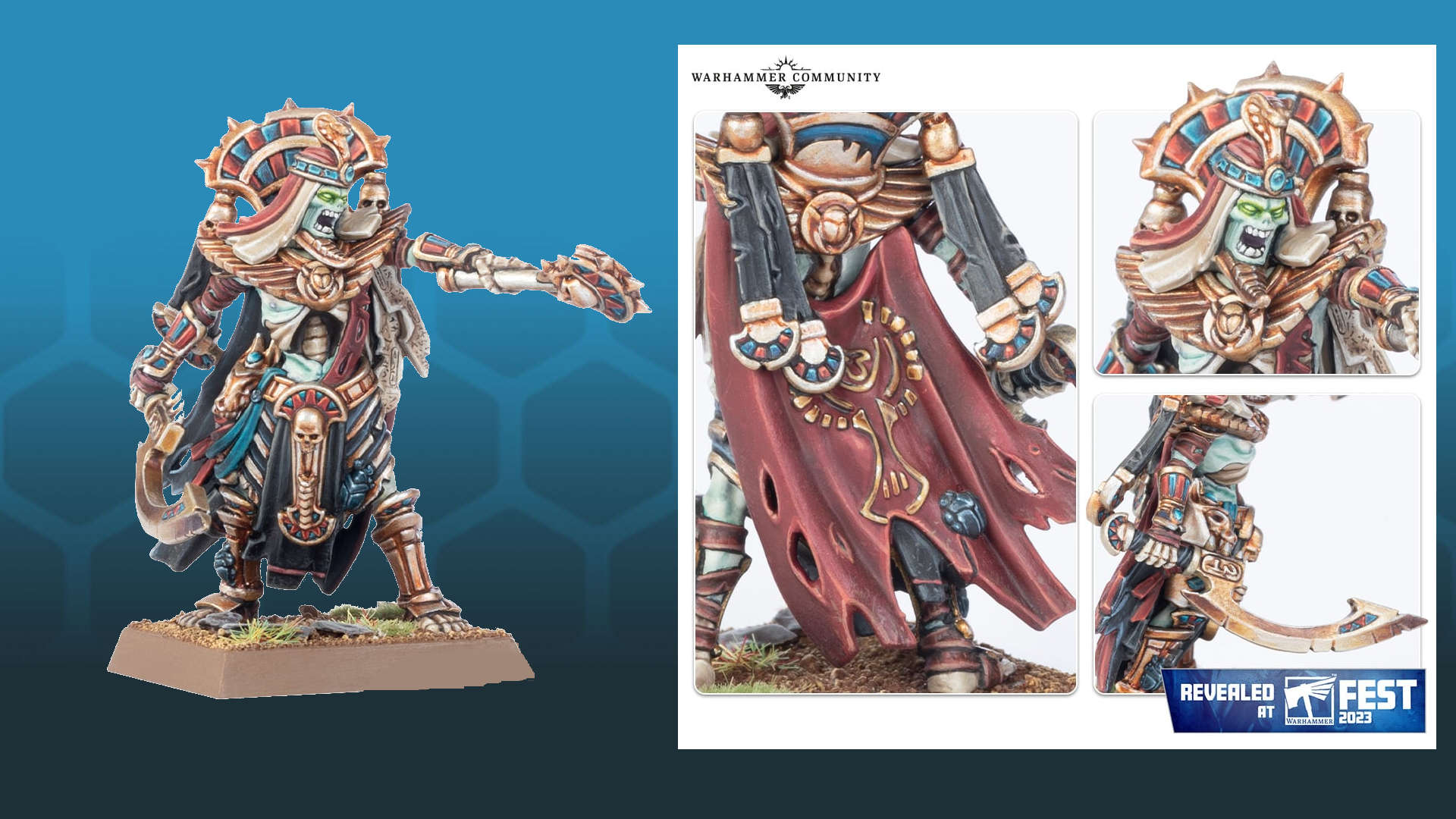Games Workshop has revealed a list of the core Warhammer: The Old World factions that will receive new and rereleased models in the first wave of new Warhammer releases. This article dives into detail on everything we know about those core factions, as well as all that we can glean about other factions and races from The Old World that could show up but aren’t yet confirmed.
We have a separate guide keeping track of the Warhamer The Old World release date and other key information about the game, while our Warhammer: The Old World rules summarizes all the previews and teasers about how the new game will work.

Warhammer: The Old World Core Factions and Legacy Factions
In a Development Diary on May 23 2023 Games Workshop confirmed the list of factions that will receive rules when The Old World launches. This is split into two categories, Core Factions and Legacy Factions.
Core factions “will be the pivotal players in the events covered in narrative expansions and supplements”, according to GW, and will receive “shiny new miniatures” along with “the return of many classic kits”.
Legacy factions don’t feature in the initial narrative for Warhammer: The Old World, but GW states that “legacy faction army lists will be made available for free as pdfs” for fans who “have these classic armies on their shelf”.
There’s also a third category of factions that Games Workshops has made statements about, revealing they have both figure designs and rules for The Old World, but which weren’t on the list of Core or Legacy factions. We have to assume that they’re coming in a later supplement.
These are the Warhammer: The Old World factions:
| Faction | Status |
| The Empire of Man | Core |
| Dwarfen Mountain Holds | Core |
| Kingdom of Bretonnia | Core |
| Wood Elf Realms | Core |
| High Elf Realms | Core |
| Orc and Goblin Greenskin Tribes | Core |
| Warriors of Chaos | Core |
| Beastmen Brayherds | Core |
| Tomb Kings of Khemri | Core |
| Dark Elves | Legacy |
| Skaven | Legacy |
| Vampire Counts | Legacy |
| Daemons of Chaos | Legacy |
| Ogre Kingdoms | Legacy |
| Lizardmen | Legacy |
| Chaos Dwarfs | Legacy |
| Grand Cathay | Unknown |
| Frozen Kislev | Unknown |
The Empire of Man
The Empire – WFB’s foremost human nation – is in trouble. The game is set during a period of internecine strife when four Elector counts and their duchies vied for the throne. The opportunity for sub-factions – which could be as simple as a colour change, or could feature totally unique units – is certainly there.
Inspired by the Holy Roman Empire, the Empire is humanity’s mightiest nation – a sprawling Germanic-accented realm with a penchant for metal, gunpowder, and flamboyant moustaches. They had one of the largest and most flexible rosters of any Warhammer army, much of which made it into Age of Sigmar in the Cities of Sigmar range.
GW has finally removed those kits from shelves as the Cities of Sigmar get their own unique models, but the firm promises many of them will return as part of Warhammer: The Old World.
You can learn more about the history of the Empire, and some of the core features of its army list, in our full Warhammer Empire of Man guide.
Dwarfen Mountain Holds
The Dwarfs have been allies of the Empire of Man for longer than there’s been an Empire. Both Sigmar’s mighty Warhammer Ghal Maraz, and the Runefang blades wielded by the twelve Elector Counts of the Empire, were forged by Dwarven artisans.
On the tabletop they fielded some of the most ridiculously powerful magic weaponry available to any faction, masses of accurate artillery, but always suffer from their stumpy legs making it nigh impossible to set up favorable charges.
You can discover the history of these redoubtable mountain folk, and how to play them on the tabletop in our Warhammer Dwarfs guide.
Kingdom of Bretonnia
If your soul beats to the thunder of a stampeding cavalry charge, or you prefer your wargaming with a high medieval, rather than early modern feel, Bretonnia is for you.
You can find out more about the lore of the great kingdom of Chivalry in our Kingdom of Bretonnia faction guide.
Putting a badass grimdark spin on Arthurian myth and the timeless aesthetic of French and British knighthood, they’ve been criticised as Warhammer’s least creative faction, to which I say: they’re also its most accessible and romantic. Everyone gets Bretonnia. (I would add that the entire setting began as a Tolkien rip-off, so let’s not pull too hard on the creativity thread.)
Bretonnia was the focus of the Old World’s fifth tease, and shows every sign of being an important fixture in the game. The fact that Louen Orc-Slayer hints at Bretonnia’s current challenges: the nation’s Greenskin infestation was so bad under his reign that he declared an Errantry War to purge it, and it seems that The Old World will indeed see Bretonnia right in the thick of this conflict.
Elsewhere, the realm’s 14 dukedoms look familiar from eighth edition, though the names and arms of the current dukes (such as King Louen’s) are all new.
Another Warhammer Community preview on March 13 2023 showed helmets, shields, and sword arms for the knightly Bretonnians. The helmets resemble European mediaeval great helms ornamented with designs like deer antlers, a dragon head, or a phoenix. Weapons and shields alike are ornamented with fleur-de-lys designs.
A reveal at Warhammer Fest 2023 showed off a new character model, a footslogging Paladin, which will be produced in resin.
Bretonnia got an overhaul in Total War: Warhammer, which added all-new troop types, such as Foot Squires, Grail Guardians, and Royal Hippogryph Knights. We know GW collaborates on these videogames and approves their content, so there’s every chance some of these troops may appear in the Old World.
An article from April 14 2023 reveals that some classic miniatures will be returning to production, with new studio paintjobs using the classic Knight, Peasant, and Trebuchet models.
Games Worskhop previewed a beautiful new resin Bretonnian Battle Standard bearer on July 1 at the “No Warhammer 40k preview”. Then, at the Nova Open Gaming convention on August 30, we got to see the Lady Élisse Duchaard, a unicorn-riding enchantress. A Bretonnian battle-standard bearer on foot showed up on October 9, ahead of a “huge preview” on Warhammer day, October 14.
That preview delivered the goods, confirming the full range of Bretonnian Units that would be part of the new game at launch, as well as revealing a host of new and returning model kits. The star of the show was a brand new hero on regal Pegasus, though new foot knights put in a good showing.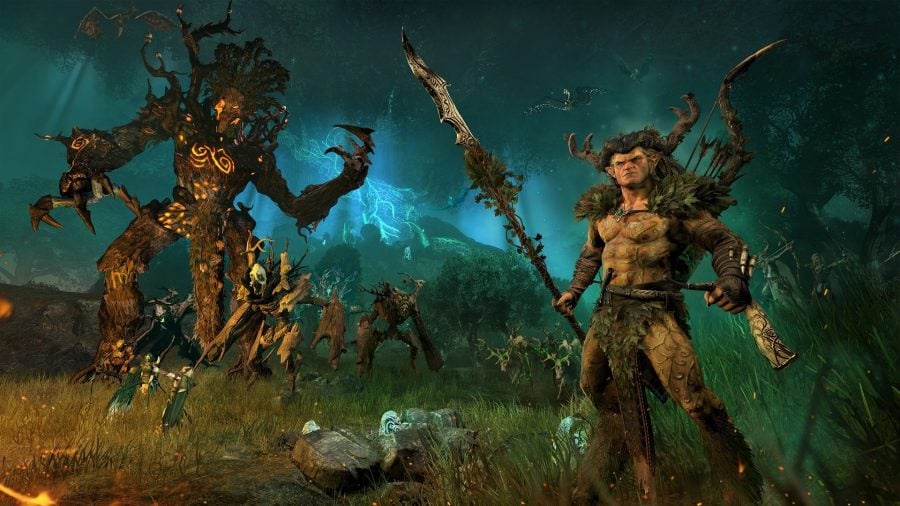
Wood Elf Realms
Borrowing heavily from Tolkien (particularly the Elves of Mirkwood, rather than Lothlorien), Warhammer’s Wood Elves are sneaky, agile, and insular. They get some of the game’s best archers, as well as badass living trees in a range of sizes.
We have a full Warhammer Wood Elves guide exploring how these sylvan sylphs play on the tabletop. 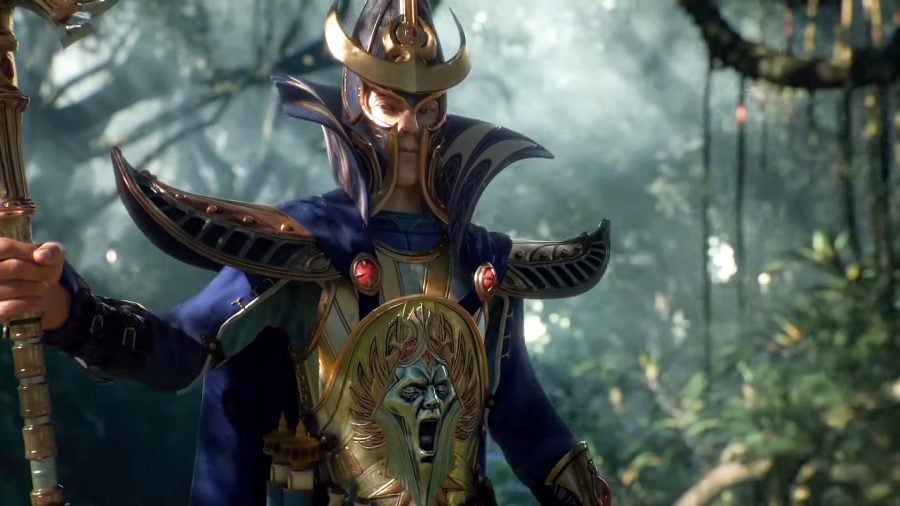
High Elf Realms
Warhammer’s High Elves are a haughty, long-lived race who live on a magical island built specifically for them by the gods who made the world, much to the annoyance of the Lizardmen, those gods’ jilted first creations.
Being the favourite spawn of an ontologically gifted entity is an apt allegory for the High Elves’ relationship with GW’s game designers, who lavish similar favours on them as those they gift the Empire: the High Elves have another massive and flexible army list, featuring toys that are essential to any fantasy game (dragons), ones which are cool but hey maybe give someone else a turn (phoenixes), and ones which are simply needless indulgence (the absurd Lothern Skycutter).
That’s in addition to some of the best wizards, magic items, cavalry, and elite infantry in the game, as well as an army-wide special rule that says they always get to strike first in close combat, because did you see the opening battle in The Lord of the Rings?
Lore fans will know that, during the High Elves’ expansionist heyday, they set up colonies all over the world, and that many Bretonnian cities were built upon their abandoned ruins. Accordingly, the Bretonnia post explicitly mentions four “High Elf enclaves” set along the fair kingdom’s coast.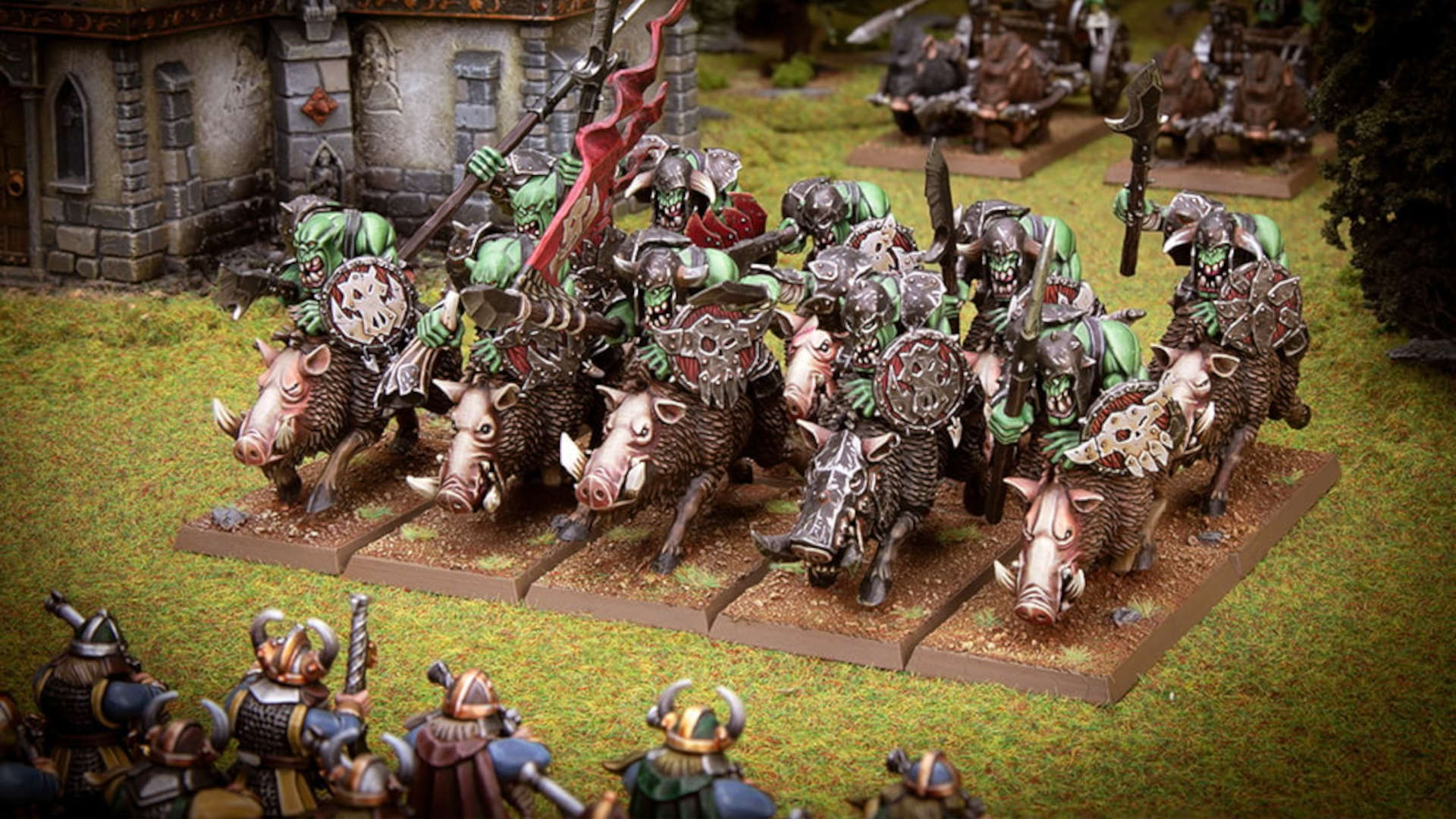
Orc and Goblin Greenskin Tribes
Warhammer has taken Tolkien’s orcs and made them its own, giving them green skin and an injection of chaotic energy that’s almost endearing if you can look past their innate lust for violence and cruelty.
Comprising brutal orcs and cunning goblins, as well as the kitbashed and crude war machines built by the latter, Warhammer’s Greenskins are one of its world’s most iconic natural forces.
Their unsurprising but welcome return in the Old World was confirmed in GW’s Bretonnia post, which highlighted the Orcs of the Pale Sisters mountains near Couronne in particular.
And, in GW’s July 21 Old World update article, it went further, to answer the biggest question on everyone’s minds: Orcs in Warhammer: The Old World will, indeed, be called Orcs – not Orruks, as they are styled in Warhammer: Age of Sigmar.
Warriors of Chaos
Games Workshop has stated that Warhammer: The Old World is set during the decades immediately before “the Great War Against Chaos and the Siege of Praag”, when “Chaos Lord Asavar Kull led his armies south against the nations of Men and Dwarfs”. This is “two centuries before the End Times” that wipe out the Old World and lead to the Age of Sigmar.
Chaos Dwarfs
Chaos Dwarfs are the corrupted counterpart to the Dwarfen Mountain Holds. Their army won’t be getting full support from Games Workshop, but they do have a full legacy army list available as a free PDF.
Check out our full guide to the Chaos Dwarfs to learn more about their history of infamy, their distinctive blend of Dwarfen tenacity with vile cunning, and the best sources of miniatures for this out-of-production army.
Skaven
During the time period of The Old World, the Skaven underempire is gripped by civil war. While vicious battles rage in the tunnels below the Old World, the ratmen have little strength to direct against the hated surface-dwellers. Hence, the Skaven aren’t a core faction for the Old World, but they are supported with a legacy army list.
Almost the whole Age of Sigmar Skaven model range can be used in The Old World, so it’s perfectly possible to build an army of furry infantry and unstable wonder weapons- you’ll just need to source some square bases for your minis.
Check out our full guide to the Old World Skaven to learn how to field these cowardly, cunning ratmen.
Lizardmen
The Lizardmen dwell in the jungles of Lustria, far to the South and West of the Old World proper and isolated from the petty civil war of the human Empire. As they’re not players in the main drama currently gripping the world, they’re a legacy faction – but players can easily use the full Seraphon Age of Sigmar army to represent their models.
The Lizardmen army is a mixture of magically potent Slann mage priests, hard-as-nails but thick-as-mud Saurus heavy infantry and cavalry, nimble and fragile Skink skirmishers and beast-handlers, and enormous dinosaur warbeasts.
To find out how to balance those diverse elements, check out our full guide to the Warhammer Lizardmen army.
Beastmen Brayherds
There’s scant information about the Beastmen, but they’re a perennial threat to the Empire, lurking in its many forbidding forests, and it’s hard to see how The Old World can be centred around the Empire and still ignore them.
A Warhammer Community post on January 11 2023 says “Beastmen Brayherds surge from the deep forests” when describing the threats facing the Empire, but doesn’t give any details on exactly what their presence in the game will be like.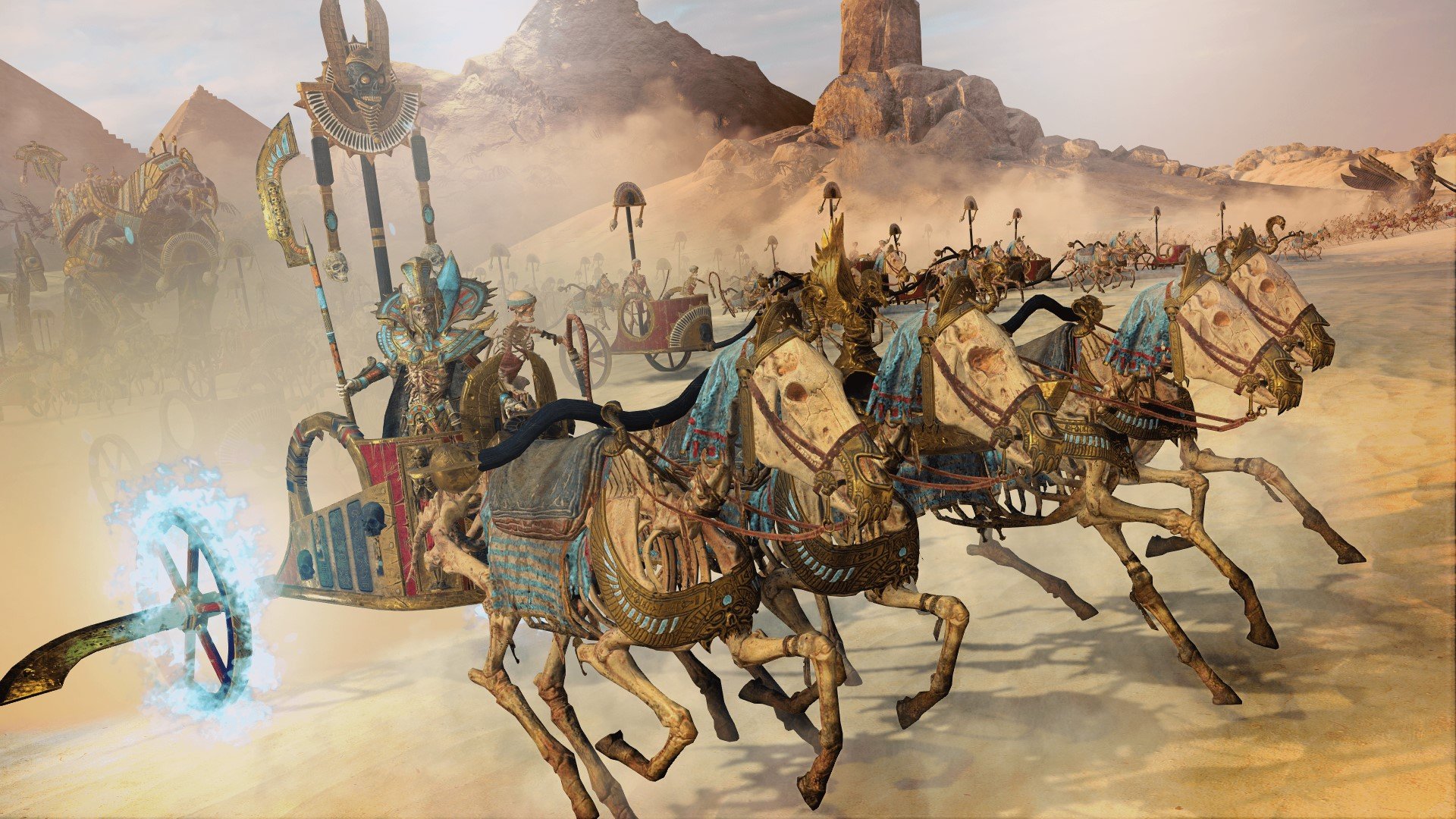
Tomb Kings of Khemri
It’s hard to kill something that’s already dead, so it’s no surprise that the Tomb Kings have risen from their graves to return to the Old World. These skeletal pharaohs are the undead rulers of Nehekhara and its ruling city, Khemri.
We had a hunch for a good while that the Tomb Kings would be announced, and this was confirmed in a Warhammer Community post on October 14 2022. Then on February 6 2023, GW posted a development diary all about the bony boys from the South.
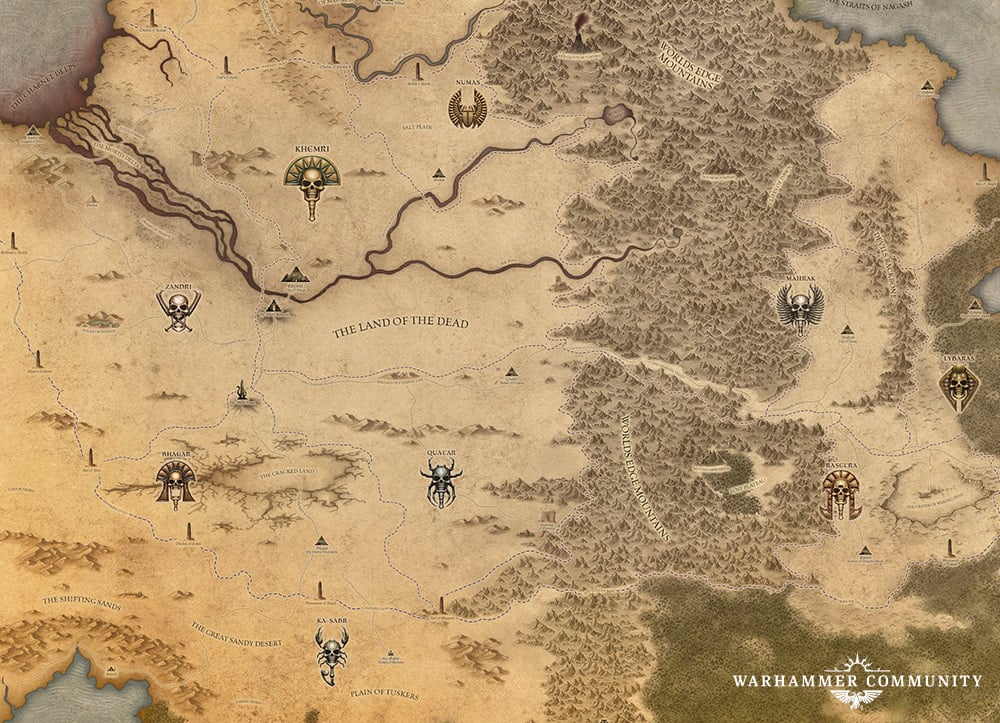
Settra the Imperishable, the Kingliest King of all the Tomb Kings, ruled an Empire as far north as Bretonnia when he was alive – now that he’s dead and back again, he intends to reclaim his rightful dominion.
Apparently, the rules are locked in for the Tomb Kings – writer Dan says that familiar features, like ranks of undead soldiers and speeding chariots, will return, adding “You will be able to wield the powers of a Liche Priest once more, commanding skeletal hordes to Arise! from their tombs and march upon the lands of the living”. That’s WarCom’s bold, not ours, suggesting ‘Arise!’ is a rules keyword.
Initially at least, The Old World won’t delve into the lands of the dead themselves: design manager Rob says “Our main focus is going to be on the role that Settra and the Tomb Kings of Khemri played in the Old World.” He doesn’t rule it out altogether, adding “there’s nothing to stop us returning to Nehekhara in the future”.
Components from several Tomb King sculpts were previewed in another article on March 13 2023. The reveal showed weapons including a flail, trident spear, long-bladed halberd, curved khopesh, a heavily decorated shield, and a Liche Priest’s staff. The description of the staff gives the only hint of game rules in the article, stating that Liche Priests use their staves “to channel their macabre magic more effectively – reducing the risk of the fickle Winds of Magic acting against the caster’s wishes”.
A new, resin model for a Tomb King on foot was revealed at Warhammer Fest 2023.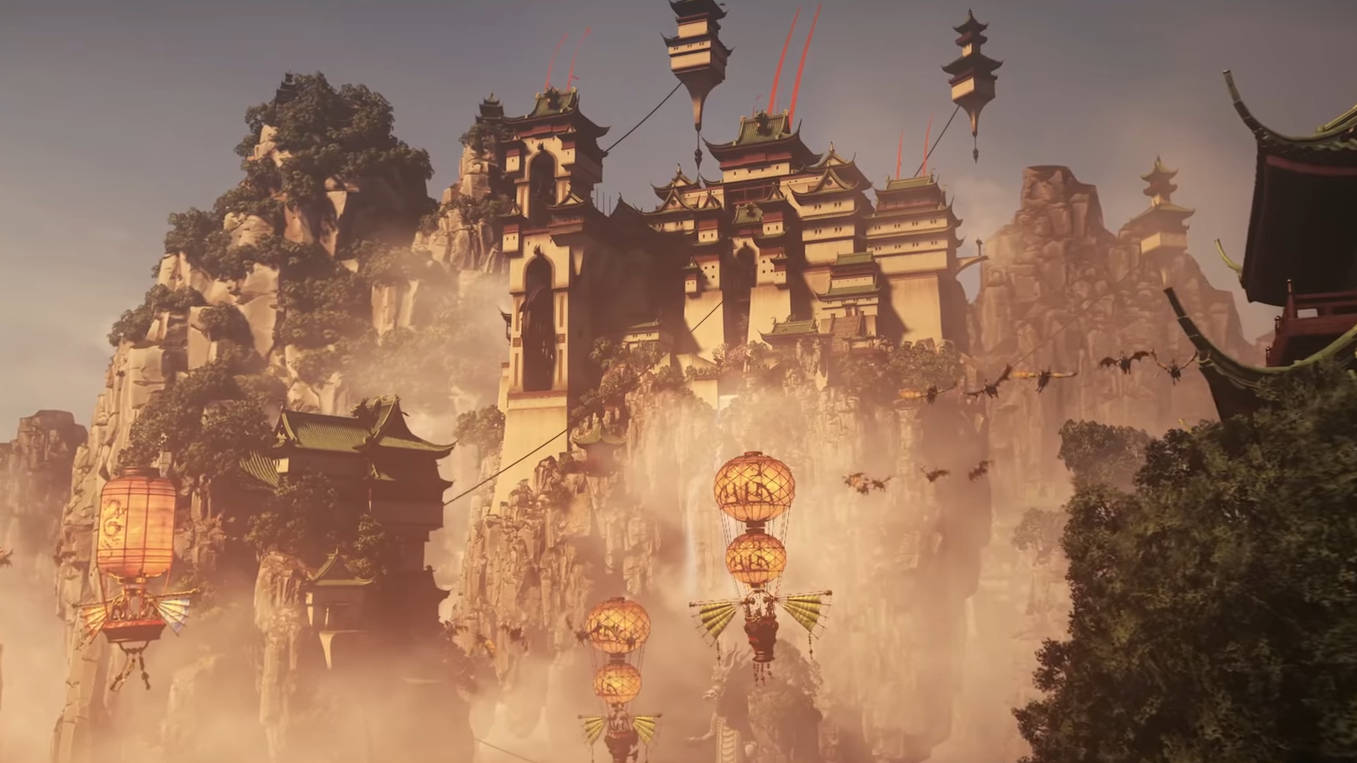
Grand Cathay
Heavily based on the culture, aesthetics, art, and warfare of Imperial China, Grand Cathay sits on the far eastern edge of the Old World, bordering the Ogre Kingdoms and Eastern Steppes beyond. Given fleeting mentions in WFB – but cropping up as early as the game’s second edition – the huge human empire remained something of a mystery that never even received an official army book.
That could yet change in Warhammer: The Old World. Cathay features as one of the base Total War: Warhammer 3 factions, and Games Workshop says it’s created tabletop rules for every Cathay unit that appears in the videogame.

The Warhammer Studio reportedly established “each and every unit for use on the tabletop, including stats and special abilities”, to work with Warhammer Fantasy Battle’s eighth edition rules. That means there’s a GW-authored WFB Cathay army ruleset floating around, just ready and waiting.
And with Total War: Warhammer 3’s release, we have a strong idea of what that must look like. The army’s Total War roster is stocked with serried ranks of halberdiers, crossbows, war machines, cavalry, hot air balloon battleships, hand cannoneers, and dragons. There are also the Alchemist and Astromancer spellcasters, as well as the terrifying Terracotta Sentinels and Great Longma riders. All in all, Cathay looks to be a tabletop army boasting plenty of toys to play with.
Cathay was one of the largest human factions of the Old World. Technologically advanced and culturally replete, Cathay follows the god-like Celestial Dragon Emperor and his wife, the Moon Empress, who match the power of the Chaos Gods.
Capable of transforming into human form, their children – Storm Dragon Miao Ying and Iron Dragon Zhao Ming – govern the empire and lead the faction in Total War: Warhammer 3 as Legendary Lords. An indication they’ll also be coming to The Old World? Perhaps.
Although Games Workshop hasn’t listed Grand Cathay as one of the primary factions in Warhammer: The Old World, given that a full tabletop ruleset has been created for the army, there’s a new map of Cathay relevant to The Old World period, and the Cathay concept art features the Old World logo, it would be weird if it doesn’t eventually turn up.
Check out our Grand Cathay guide to explore its history and identify in greater deail. 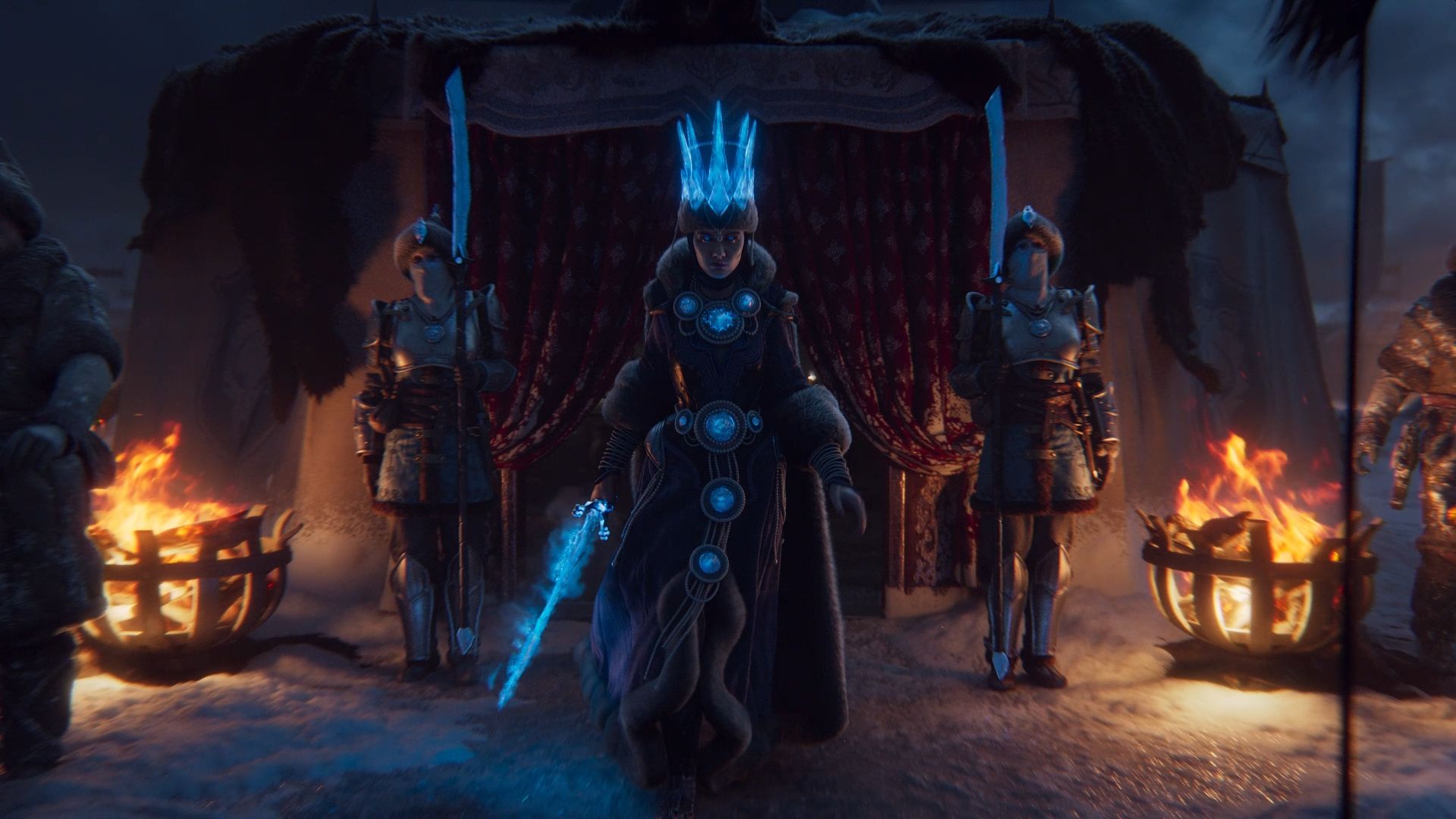
Frozen Kislev
Defined by its ceaseless struggle against the evil powers of Chaos that lie to its north, Kislev is an impoverished but battle-hardened land of rugged humans, some of whom ride bears into battle. Aesthetically it’s inspired by Slavic nations, particularly Russia, and it never got a fully-fledged army book in Warhammer’s previous editions – merely a threadbare supplement in 2003.
So it was a bit of a surprise when the very first post about Warhammer: The Old World after its announcement was all about this harsh, icy realm, and even more so when it was followed by another article on its new bear cavalry.
And, in the July 21 update, we got the further titbit that, at the time Warhammer: The Old World is set (confirmed to be “several hundred years” before the Old World’s apocalyptic End Times), Kislev’s borders extend far further than has been documented in previous Warhammer fantasy outings.
GW says that “one of the coolest aspects of returning to the world-that-was is the opportunity to revisit certain aspects of its classic lore and delve into them in greater detail than ever before,” and names Kislev as a “perfect candidate for further investigation”. The first Kislev post teases updated models for two classic units (the Ungol Horse Archers and Winged Lancers) and announced a brand new unit in development: the Ice Guard. Plus the bears, of course.
So given all of that, it’s really weird that Kislev doesn’t appear on the list of Core Factions for The Old World.
We don’t fully know what this means yet. The days when a new army meant a relatively rapid rollout of dozens of models with a single book are probably gone, replaced by GW’s more modular releases.